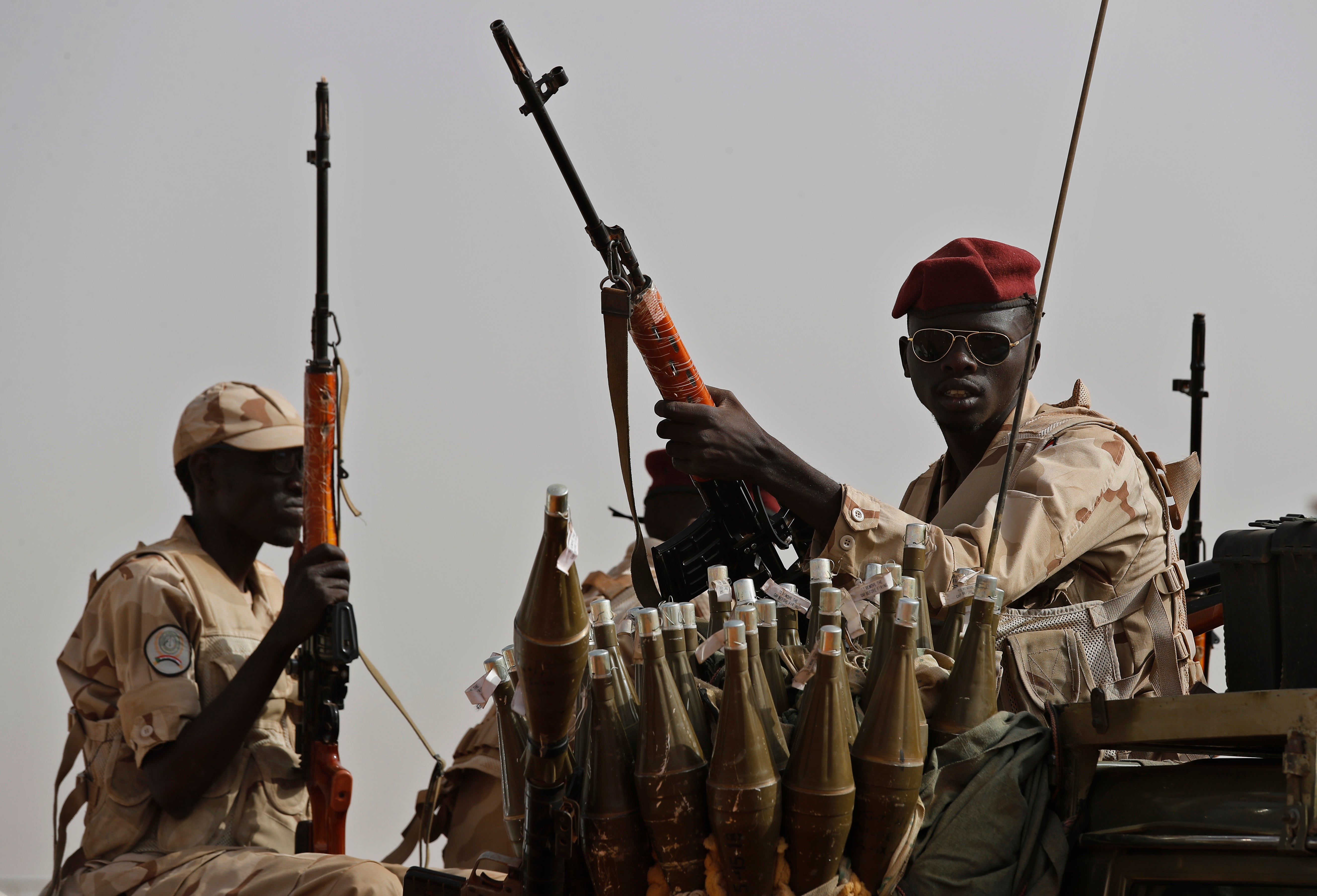UN adopts a resolution demanding that Sudan's paramilitary force halt its siege of a Darfur city
The U.N. Security Council has adopted a resolution demanding that Sudan’s paramilitary force halt its siege of the only capital in the vast western region of Darfur that it doesn’t control

The U.N. Security Council adopted a resolution Thursday demanding that Sudan’s paramilitary force halt its siege of the only capital in the vast western region of Darfur that it doesn’t control where more than a million people are reportedly trapped.
The resolution, which was approved by a vote of 14-0 with Russia abstaining, expresses “grave concern” at the spreading violence and credible reports that the paramilitary Rapid Support Forces are carrying out “ethnically motivated violence” in El Fasher.
Sudan plunged into conflict in mid-April 2023, when long-simmering tensions between its military and paramilitary leaders broke out in the capital Khartoum and spread to other regions including Darfur, which became synonymous with genocide two decades ago. The U.N. says over 14,000 people have been killed and 33,000 injured.
Two decades ago, Darfur became synonymous with genocide and war crimes, particularly by the notorious Janjaweed Arab militias, against populations that identify as Central or East African. Up to 300,000 people were killed and 2.7 million were driven from their homes.
That legacy appears to have returned, with the International Criminal Court’s prosecutor, Karim Khan, saying in January there are grounds to believe both sides may be committing war crimes, crimes against humanity, or genocide in Darfur.
The RSF was formed from Janjaweed fighters by former Sudanese President Omar al-Bashir, who ruled the country for three decades before being overthrown during a popular uprising in 2019. He is wanted by the ICC on charges of genocide and other crimes during the conflict in Darfur in the 2000s.
The resolution demands that the RSF and government forces ensure the protection of civilians, including allowing those wishing to move in El Fasher or leave the North Darfur capital to safer areas.
It calls for an immediate halt to the fighting and de-escalation around El Fasher, and for “the withdrawal of all fighters that threaten the safety and security of civilians.”
The resolution calls on both sides “to seek an immediate cessation of hostilities, leading to a sustainable resolution to the conflict, through dialogue,” supported by U.N. envoy Ramtane Lamamra and the African Union’s High-Level Panel on Sudan.
It also calls on all nations to halt interference fomenting conflict and instability instead of peace efforts and to remind countries supplying weapons to the combatants that they are violating a U.N. arms embargo and could face sanctions.
U.N. political chief Rosemary DiCarlo told the council on April 19 that the year-long war has been fueled by weapons from foreign supporters who continue to flout U.N. sanctions aimed at helping end the conflict. “This is illegal, it is immoral, and it must stop,” she said.
She didn’t name any of the foreign supporters.
But Burhan, who led a military takeover of Sudan in 2021, is a close ally of neighboring Egypt and its president, former army chief Abdel-Fattah el-Sissi. In February, Sudan’s foreign minister held talks in Tehran with his Iranian counterpart amid unconfirmed reports of drone purchases for government forces.
Dagalo, the leader of the RSF, has reportedly received support from Russia’s Wagner mercenary group. U.N. experts said in a recent report that the RSF has also received support from Arab allied communities and new military supply lines running through Chad, Libya and South Sudan.
The resolution expresses concern at “the catastrophic and deteriorating humanitarian situation, including crisis-level or worse acute food insecurity, and the imminent risk of famine, particularly in Darfur.”
The U.N. humanitarian office said Tuesday that the U.N. and aid organizations “are working against the clock to stave off famine and mitigate the most pressing humanitarian needs in Sudan.
But the U.N. said this is “incredibly challenging” because this year’s humanitarian appeal for Sudan is just 16% cent funded -- with less than $441 million received of the $2.7 billion required.
Bookmark popover
Removed from bookmarks